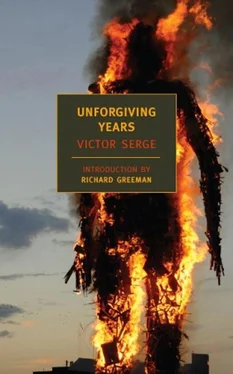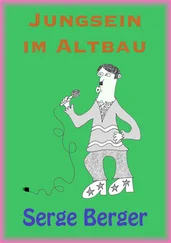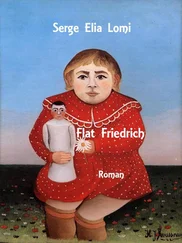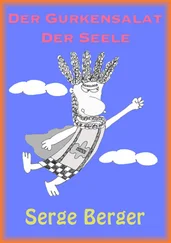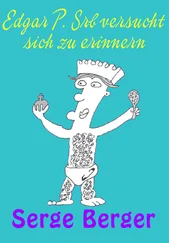“Not many. The inspector doesn’t like to let them go.”
Mr. Gobfin opened a scuffed leather wallet. First he pulled out the photo of a frail-looking woman, probably blond, pretty, her eyes round with fright. A series of white numbers barred her chest. “Chronic swindler, I know her… She’s awfully nice to me since she learned that I carry this around, if you catch my meaning.”
“Say no more.”
“Her sort, you just got to know how to handle them,” snickered Gobfin, olive-yellow. “Then they’re nice as can be… Here, look, one that came in this morning.”
D recognized himself straightaway. The picture had been snapped in the street without his knowledge. They were taking no chances! Or had I already been spotted? By whom? It was from six months ago, on his return from Madrid, with sixty frames from the Alcántara file rolled into the handle of a shaving brush… “Who is it?” he asked casually. Taken unseen on the big boulevards, the picture showed a man with tortoiseshell glasses and a broad smile, wearing a felt hat that obscured the upper part of his face, the collar of his coat turned up; he was standing beside a car. Beyond was a pharmacy, and two ladies seen from behind… A male shoulder faced the hatted man. Whose? On the back of the picture, in copperplate hand: X, alias Isoray; Marcien, alias Zondero-Ribas; Juan, alias Steklansky; Bronislaw… (1. The photo unquestionably comes from Them, from our people. 2. They haven’t got a more recent one, good. Or They don’t choose to release a clearer one… Good. 3. They haven’t listed my alias as Malinesco, Clément, in order to comb through the flat in peace… Therefore I’m being denounced as an agent of the others… Which others? 4. A useless photo. Only the lower half of the face is at all recognizable.)
“An embezzler?” ventured Monsieur Battisti.
“A suspicious foreigner, suspected spy… You think one of those birds would ever come to a decent unassuming place like this? They stay at palatial hotels.”
Monsieur Gobfin looked Monsieur Battisti straight in the eye for the first time.
“At any rate,” said Battisti lightly, “I think you’re after the wrong Negro.”
“And I,” Gobfin responded, “am almost certain I am not — especially since our little chat. If you’ll excuse me…” The marionette withdrew, leaving after him the image of his politest smile — the smile of a stool pigeon in a dull black suit.
* * *
D did not wish to show any sign of alarm: the Battistis remained at the hotel. Past the reception desk, the hallway expanded into a very modest lounge, furnished with a rattan couch and armchairs. A round table was littered with tourist magazines. This inhospitable setting was a good place to observe the outlines of people passing in the street, note the comings and goings on the stairs and elevator, and keep an eye on Monsieur Gobfin. The lounge was rarely vacant. Sometimes there was an ordinary-looking fat gentleman smoking and lolling drowsily over his paper. Sometimes a younger man, pencil in hand, attempting the crossword. Neither was interested in this corner of the world — the bottom of a jar where they were waiting to shrivel dry for all eternity. D settled into an armchair opposite the stout reader. The man blew his nose. Monsieur Gobfin, at his post, unhooked the telephone receiver. “Allo, Félix? Gobfin here. Send us a taxi on the dot of five twenty-five.” An ordinary request to all appearances but which, D noted, contained the figure 525. A female voice rang out shrilly, accompanied by muted trumpets of deliverance: “And you didn’t forget to order me a cab for five thirty?” “Not to worry, Madam, it’ll be here.” Still, five thirty was not 525 and this woman’s car might have been ordered beforehand… The trumpets faded away. The fat man folded his paper and moved off, with a heavy stare at D. He didn’t leave his key at the desk on the way out, passing Monsieur Gobfin without so much as a nod. Rude of him. Should I follow? As D tried to make up his mind, the appearance of Nadine rescued him from a budding obsession, but now Gobfin had picked up the phone again… “Well then,” Nadine said, “are you coming?” D blinked a signal; idly he toyed with his lighter before touching it to the cigarette. Gobfin was calling a Monsieur Stevenson on the line. A novelist’s name that had passed into the public domain, Treasure Island , and this Stevenson in turn will be communicating with a Mr. Milton on the subject of Paradise Lost , you can bet your life. “Yes, sir, I received a wire for you at three forty… Yes, sir…” One hour and forty minutes’ delay in reporting the arrival of a telegram? Fishy, that. And what’s three forty, 340, in code? I’m going crazy, D thought. He went outside. So many people, hard to tell anyone apart. The stout reader was returning to the hotel with a Spanish-looking woman on his arm. “They’re going to bed, that’s all, that’s why he kept his key… Unless he went to fetch her in order to finger me…” The couple, bent forward, dived through the doorway as though headlong into a hole.
It’s not in their interest to have me arrested. After all, I could claim the protection of the French authorities. They’re only trying to locate me, which is worse. And have they? The question mark revolved around Monsieur Gobfin. The pros and cons oscillated evenly, like a pendulum. “Nadine, I need to check the back issues of Le Matin .” The hubbub of the city always comforted D, even if it’s a mistake to feel any safer, any more alone, any more lost on a pavement teeming with lives than behind walls protected by secrecy. It must be that mingling with other men and women restores our means of contact, of direct hand-to-hand combat. A host of random factors can work against the lone figure in the melee. Some of the odds are with him; but when he is pitted against huge, well-equipped organizations, the grim probabilities outweigh the lucky chances. All the same, big-city streets — sown with traps though they might be — appeared to give D the initiative. The city dweller, even when invisibly surrounded, relies upon himself at every turn. He reacts to encounters with the life-preserving ingenuity of a beast in its native forest, that sees a bolt-hole in every bush — a cruel illusion, if the beaters have done their job. But the hunters are also sure to make mistakes, and if their quarry doesn’t panic, there’s always a chance of salvation. What sets man apart from beasts is that humans have the option not to panic.
The presses were humming quietly in the Matin offices, a glass-walled building painted a dirty red. Bruno Battisti quickly tracked down what he was looking for in the volumes of recent issues — the crime, not on place de Clichy but on a street off place Blanche, a murder needlessly illustrated with a picture that suggested a big cockroach squashed onto the page. A teenager’s body stretched prone, arms flung forward, lashed together at the wrists. Beneath the throat the sheets were stained black. The reporter, a pseudo-cultured hack, described the victim as “a disciple of the British aesthete Oscar Wilde, whose scabrous misdoings were the talk of the town in his day…” Stupid! Stupid! The reference to a “mysterious black dancer” cleared Monsieur Gobfin of the mists of suspicion.
“All’s well, Nadine. Do you want to go out and find some distraction tonight?”
“It won’t be easy,” replied the young woman, smiling gamely. “If you wish.”
Out of habit he turned to the classified ads, which he hadn’t checked since making the break. And the appeal he found there hit him like a blow in the chest. “JOSSELINE begs Yves to write. Urgent. Overwhelmed grief. Faithful.”
“Nadine, there’s a message from Daria…”
Читать дальше
